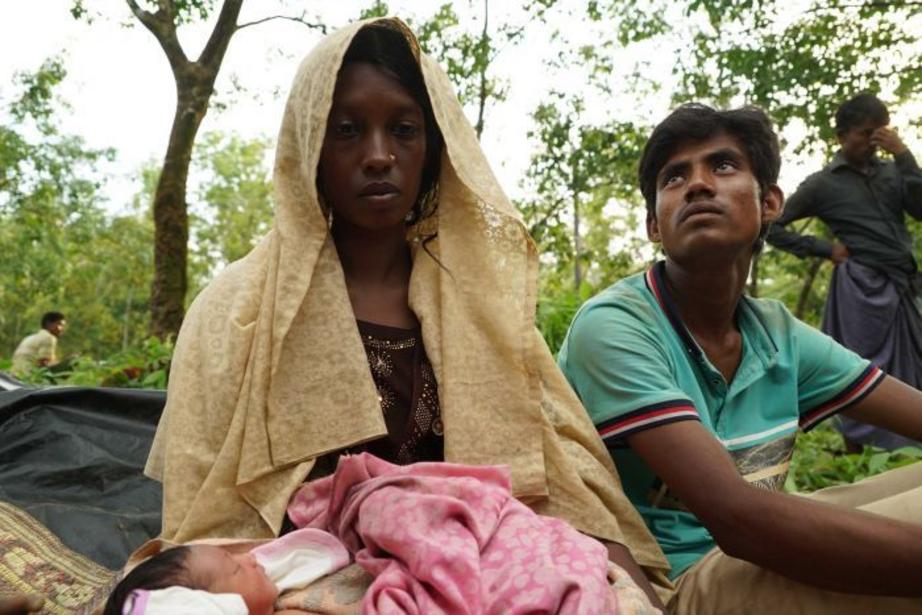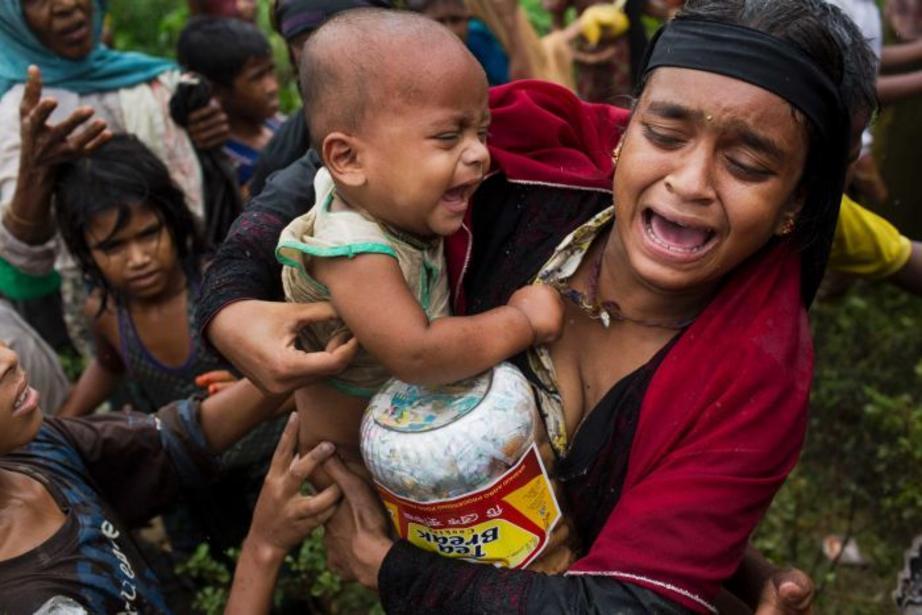Rohingya fleeing violence in Myanmar fight for survival in Bangladesh refugee camps
A dire humanitarian situation is unfolding inside overcrowded Rohingya refugee camps in Bangladesh after the number fleeing violence in Myanmar reached more than a quarter-of-a-million.
Key points:
- An estimated 270,000 Rohingya Muslim refugees have fled Myanmar to neighbouring Bangladesh
- Refugees safe from violence but now scrambling for scarce space, food, water and shelter
- UNHCR says 'huge financial resources' needed for 'unprecedented' situation
The UN has confirmed the refugee count is now estimated at 270,000, since Myanmar's military launched a brutal crackdown on Rohingya insurgents in late August.
But while they are welcome for now in Bangladesh, beleaguered authorities there simply cannot cope with the influx, and many are without food, water and shelter.
Look in any direction around the sprawling Kutupalong refugee camp and misery stares back.
Here, a few kilometres inside Bangladesh, Rohingya Muslims are safe from the violence they fled, but must fight for survival anew.
Whole families, sick people, injured people, the aged and parents with newborn children are scrambling for scarce space, food, water and shelter.
Among them are Ali Johar and his wife Khuthija.
Exhausted and speechless, she holds a two-day old baby girl, whom she gave birth to unaided in the jungle.
Her mother-in-law pulls back a swaddle cloth to reveal a remarkably healthy-looking infant.
But this girl, as yet unnamed, begins life without clean water, sanitation, or much of anything to survive.
Her father Ali Johar said he could not bring anything when they fled.
Nearby, Hafizullah Muhammad and his wife Senwara Begum have claimed a patch of scrubby hillside for them and their five children.
She said she witnessed Buddhist vigilantes beheading people near the border, but could not say how many.
Haifizullah explains that his village of Andan was surrounded by the army.
"The army fired on our house, we all came out and surrendered," he said.
"The army said to us, 'OK, run away'. We went one side, my parents went the other.
"We still don't know where they are."

Alongside that anguish, this family and thousands more like them now face dire circumstances.
A report several days ago by the UN's International Agency for Migration said that groundwater in the area was lacking, and although more borewells were being drilled, they were unable to meet demand.
Thousands of new arrivals each day set up deeper into the jungle, hacking at the scrub and hoeing terraces into the hillside to clear space for bamboo frames on which they hang tarpaulins.
Amid the humid air hangs the stench of sewage.
The crowds' desperation is evident when trucks delivering aid dare stop. Those handing out packages must beat back desperate crowds with sticks.
Exhausted and destitute arrivals sit by the roadside.
The makeshift camp's secretary Noor Mohammad is pleading for more supplies.
"The new arrivals, some of them are two days without food, some three days without food," he said.
"They don't have anything to cook with, nothing to put on the ground, some children have no clothes, they're coming naked."
For the rest of this article please go to source link below.
Video can be accessed at source link below.

